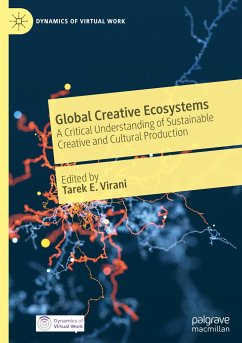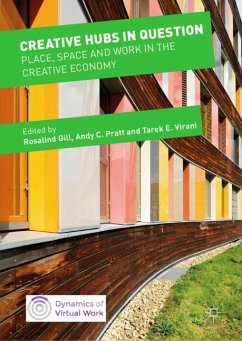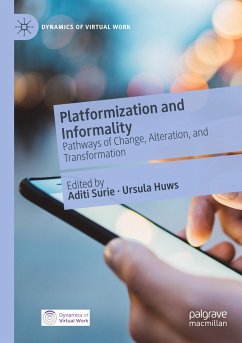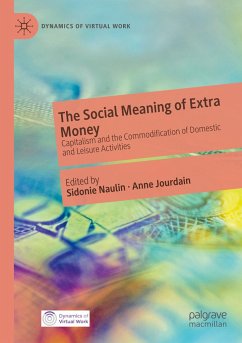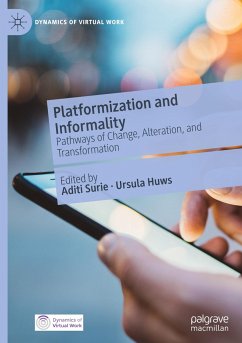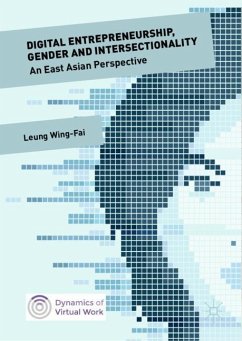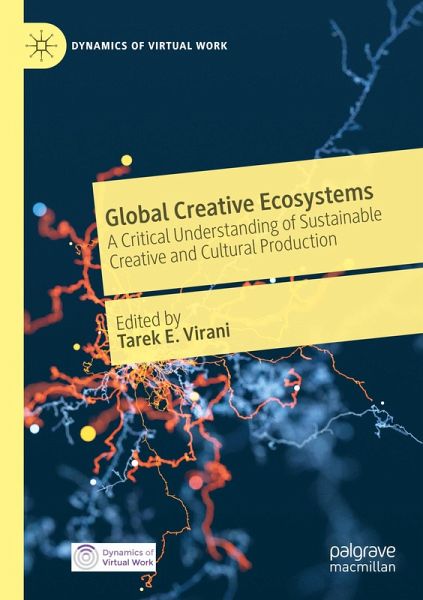
Global Creative Ecosystems
A Critical Understanding of Sustainable Creative and Cultural Production
Herausgegeben: Virani, Tarek E.
Versandkostenfrei!
Versandfertig in 6-10 Tagen
98,99 €
inkl. MwSt.

PAYBACK Punkte
49 °P sammeln!
This book reorients the lens of global creative economies in order to focus on ecological articulations of cultural production ecosystems. While numerous volumes and studies exist of how cities and regions all over the world produce culture, this volume uses a creative ecosystems perspective to articulate and underpin examples of sustainable growth and development with respect to cultural production.This volume offer a distinctive, in-depth understanding of how creative and cultural policy works in cities from around the world - not solely from academic or policy perspectives but including pra...
This book reorients the lens of global creative economies in order to focus on ecological articulations of cultural production ecosystems. While numerous volumes and studies exist of how cities and regions all over the world produce culture, this volume uses a creative ecosystems perspective to articulate and underpin examples of sustainable growth and development with respect to cultural production.
This volume offer a distinctive, in-depth understanding of how creative and cultural policy works in cities from around the world - not solely from academic or policy perspectives but including practitioners as well. The book aims to question and reformulate policy as it has been developed through creative industries approaches and instead offer up different examples and approaches to regional development with a focus on cultural production. The book carves a creative economy policy-oriented path of development that reflects the real world.
This volume offer a distinctive, in-depth understanding of how creative and cultural policy works in cities from around the world - not solely from academic or policy perspectives but including practitioners as well. The book aims to question and reformulate policy as it has been developed through creative industries approaches and instead offer up different examples and approaches to regional development with a focus on cultural production. The book carves a creative economy policy-oriented path of development that reflects the real world.



